Contents
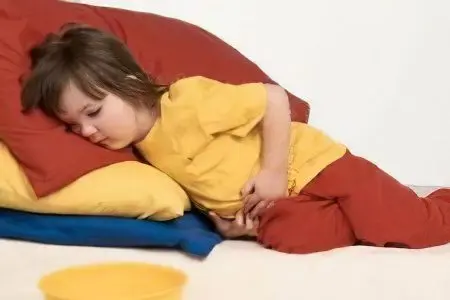
Pinworms are roundworms from the nematode genus, the oxyurid family, parasitizing in the human body. They are the causative agent of enterobiasis, a parasitic disease diagnosed in 25-90% of preschool children. Such a wide range of statistical data is due to the fact that the presence of pinworms in preschool children is not always manifested by characteristic symptoms.
Often, pinworms do not cause any pain in the child’s body. Complaints in a child can appear only with a powerful invasion of helminths. Most often, there is such a symptom characteristic of pinworms as nocturnal itching in the anus. The discomfort that occurs in a child disturbs restful sleep, children become irritable.
Ways of transmission of pinworms in children
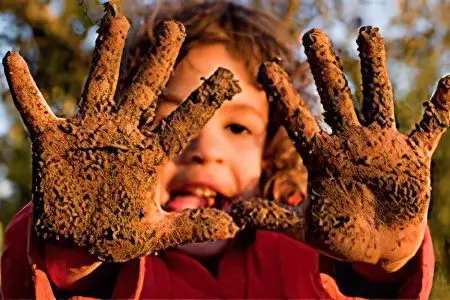
Enterobiasis is transmitted by household contact when a sick child spreads pinworm eggs in its habitat on the hands and under the nails. They get there when children comb the skin around the anus, irritated by the female helminth crawling out of the rectum. Adult pinworms crawl out of the intestine late in the evening or at night to lay fertilized eggs in the skin folds around the anus. After scratching, a huge number of eggs remain on the skin of the hands and under the nails.
In this way, other family members can become infected if they do not observe basic hygiene skills. A child with enterobiasis is at risk of reinvasion by swallowing eggs laid by helminths that live in his intestines. This risk is increased if infected children rarely wash their hands and do not change their underwear and bed linen immediately after sleep. Touching toys, household items, dishes and food, pet hair, the child spreads pinworm eggs in its habitat.
All family members, as well as members of the children’s team, where the child with enterobiasis is, most often become infected in the shortest possible time. Through unwashed hands while eating, biting nails, sucking fingers or toys, pinworm eggs enter the mouth, then into the intestines. After 4 weeks in the intestine, the parasites become sexually mature pinworms and begin to lay eggs. If you scrupulously follow the recommendations for personal hygiene during the treatment of pinworms, self-infection of children can be stopped. An important condition is that all family members should be treated.
Diagnosis of pinworms in children
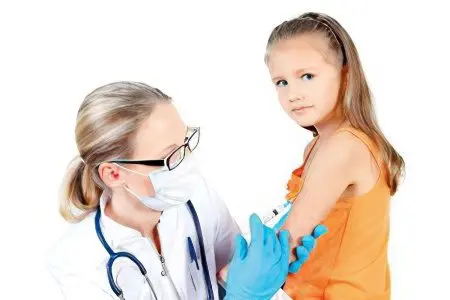
The main method for diagnosing pinworms in children is scraping for the presence of helminth eggs in the skin folds around the anus. The time of the scraping is the morning period of time before defecation, while you can not wash the child’s anus. This method is not XNUMX% accurate because pinworms do not lay eggs every day. However, on the day before which the child was worried from itching at night, the result of the analysis will be accurate.
Even if there are pinworms in the intestines of a child, the analysis may be negative.
With a combination of such symptoms of pinworms as:
Itching in the anus;
Abdominal pain;
poor appetite;
Allergic manifestations;
intestinal dysbacteriosis;
Elevated levels of eosinophils in blood tests,
It is recommended to take a scraping three times, the first two – every other day, and the third – after 10 days. In this case, there is confidence in the reliability of the data obtained.
An analysis of feces for worm eggs is not informative, since the female lays them on the skin near the anus, and not in the intestines. Visually, it can be found in the feces or on the skin folds of an adult helminth, similar to a piece of white thread 0,5-1 cm in size. Its body has pointed ends on both sides.
Methods for sampling material for diagnostics:
With the help of adhesive tape, which is briefly pressed against the skin folds near the anus, and then glued to the glass;
With a cotton swab soaked in Vaseline.
Most often, the second method is used. The material is examined on the spot or sent to the laboratory for microscopic examination within a period of not more than 2 hours.
Symptoms of pinworms in a child
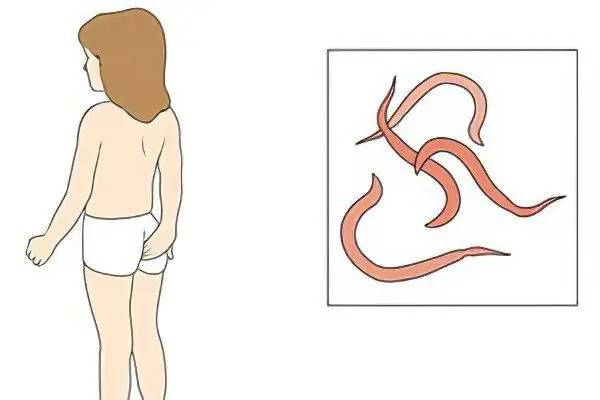
Finding pinworms in the feces of a child or on his skin is rare, even with the strongest infestation with parasites.
Even with a negative result of scraping for enterobiosis, their presence in the intestines of a baby can be suspected by the following signs:
Severe nocturnal itching in the anus, the appearance of traces of scratching on the skin;
Restless sleep, crying at night in the youngest children, the child has difficulty falling asleep, often moves in sleep in bed;
Nausea and decreased appetite;
Excessive salivation (drooling);
Increased appetite;
Dyspepsia (constipation, diarrhea), dysbacteriosis;
headache, dizziness;
Increased fatigue, capriciousness, irritability;
Pale face with bluish circles under the eyes;
Grinding of teeth during night sleep (unproven claim).
Constant irritation of the skin around the anus during prolonged invasion can be complicated by the addition of a bacterial infection.
Pinworms in the course of their life activity release toxins, a powerful invasion significantly affects the nervous system of the child with these toxins. As a result, children develop irritability and behavioral disorders. Constant fatigue and lack of sleep lead to lethargy, impaired attention, lagging behind in school. Anthelminthic therapy should be started immediately at the first symptoms of pinworms.
The peculiarity of the structure of the genitourinary system of girls leads with enterobiasis to irritation of the urethra and vagina, external genital organs. The consequence of this is urinary incontinence, inflammatory processes with copious secretions (vulvovaginitis). Long-term invasion exacerbates allergy symptoms: increased eosinophil levels, eczema, dermatitis. The pallor of the child’s skin indicates a decrease in hemoglobin levels.
Complications of pinworms in children
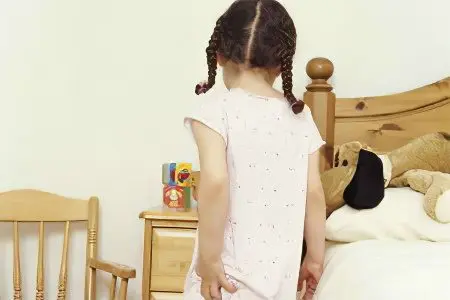
If you do not start timely treatment of enterobiasis, the children’s body does not receive enough vitamins, trace elements, nutrients, so necessary for it to develop fully. Instead, colonies of pinworms fill it with toxins, provoke manifestations of allergies. In a depleted body with prolonged invasion, the level of immunity is significantly reduced.
Complications of enterobiasis in children:
Eosinophilic enterocolitis – intestinal damage, appears with high sensitivity to pinworm antigens, with massive helminthiasis;
Salpingitis and oophoritis – inflammation of the ovaries and fallopian tubes when pinworms penetrate the genitals;
Appendicitis – an inflammatory process with the accumulation of pinworms in the caecum;
Vulvovaginitis – inflammation of the vagina when pinworms enter the genitourinary system;
Peritonitis – inflammation of the peritoneum when parasites penetrate the walls of the intestine;
Inflammation of the foreskin in boys when parasites penetrate under it;
Increased risk of allergization of the child’s body;
Increased risk of onanism, balanitis, leucorrhea with excessive irritation of the genital organs with pinworms;
In children with a weak type of nervous system, neurological abnormalities appear, increased irritability, seizures can develop according to the type of epileptoid seizures.
In addition to everything, children with a long-term invasion are often underweight, lag behind in physical and mental development.
Treatment of pinworms in children
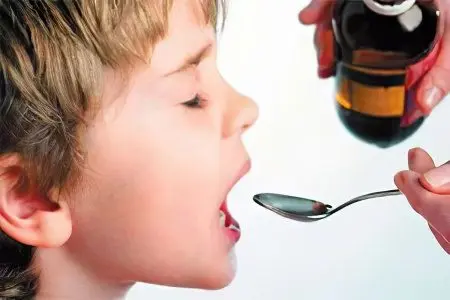
In children, the treatment of pinworms is unacceptable to carry out independently. Treatment directed against pinworms in a child’s body can only be carried out by a doctor (pediatrician, infectious disease specialist, helminthologist). He will take into account contraindications, the individual characteristics of the child, and accurately calculate the dose of the drug. Almost always, after 10 days, you have to repeat the course of treatment in order to get rid of the pinworms that have appeared during this time from the eggs.
Treatment of pinworms is carried out in all family members, as well as in those who have often been in contact with the child.
Treatment of children from pinworms should begin after preliminary preparation. The day before the start of therapy, foods that fix stools, solid foods are excluded from the diet. Soups and dairy products remain on the menu. A light fruity dinner the evening before is welcome.
In the morning, the child takes the remedy prescribed by the doctor. In the evening of the same day, it is recommended to take a laxative to speed up the evacuation of dead pinworms from the intestines. To prevent self-infection of children during treatment, it is necessary to neutralize the environment from helminth eggs as much as possible.
Hygiene rules that must be followed during treatment:
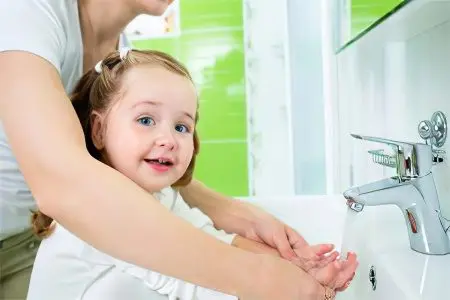
The dwelling is daily wet cleaned with the use of disinfectants;
The toilet bowl and sink for washing hands are treated with disinfectant solutions;
The underwear of the child and all family members should be changed in the morning and evening, children’s panties are disinfected by ironing with a hot iron;
Nail biting is excluded, they are cut short;
Wash hands with soap and water before meals and any snacks, after going to the toilet.
So that the child is not disturbed by manifestations of allergies, skin itching, dermatitis, antihistamines are used. The most effective are syrup and drops of Tsetrin, Zodak, Loratadin. If children do not feel the discomfort of itching, they scratch their skin less and do not spread pinworm eggs on their bodies and clothes. From severe itching, an enema with a solution of soda is used (half a teaspoon per 200 ml of boiled warm water)
To protect the child from toxic effects as a result of the death of helminths, enterosorbents are used a day later: Polyphepan, activated carbon, Enterosgel, Smektu, Polysorb, Filtrum STI. This time period must be observed, otherwise enterosorbents will reduce the medicinal effect of drugs for the treatment of enterobiosis. It is not necessary to prolong the intake of enterosorbents for longer than 1-2 days, since drugs from this group reduce the absorption of nutrients and vitamins, while prolonged helminthiasis has already led to a deficiency of nutrients.
Pinworms in children require immediate treatment, which is carried out under the guidance of a doctor. During anthelmintic therapy, hygiene rules should be carefully observed to prevent re-infection.









